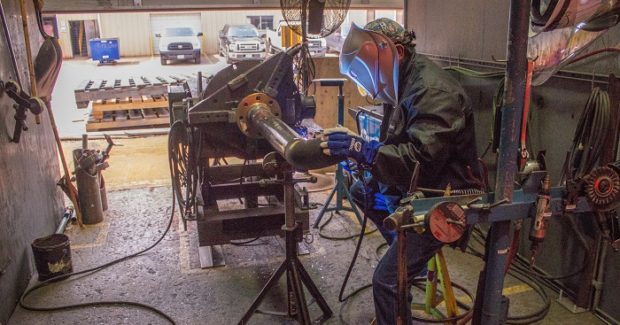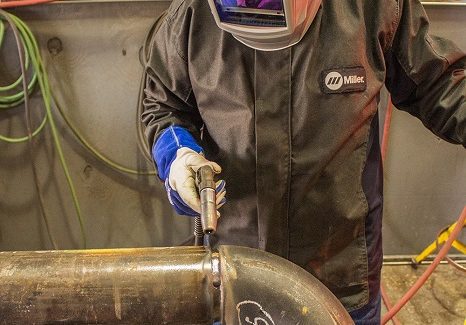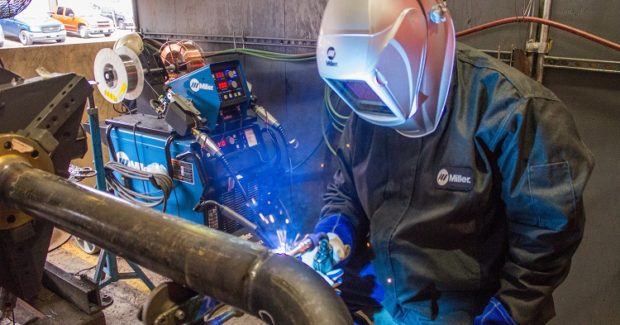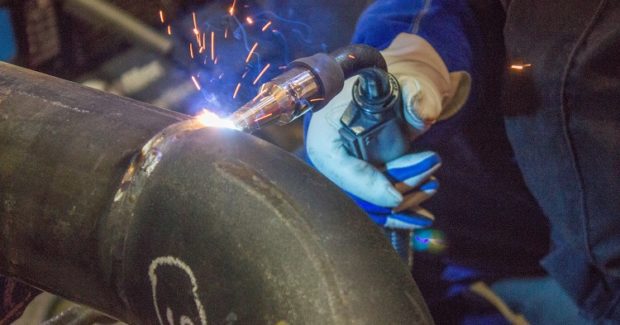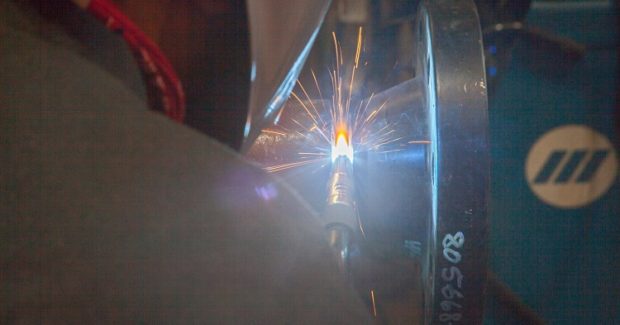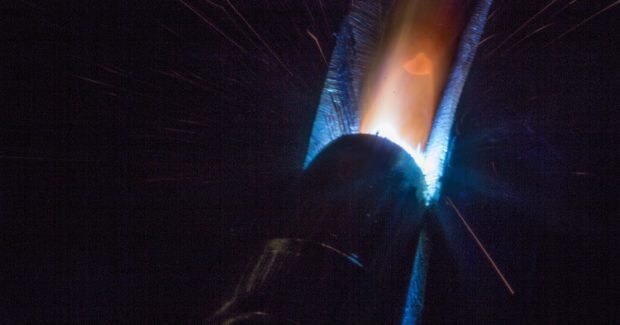How a Welding System Conversion Increased Production at Exterran by 30 Percent
Take a closer look at how a welding process conversion and equipment standardization in their Brittmoore pipe shop in Houston helped to significantly increase productivity and improve on already-high weld passage rates in only a few months.
Posted: January 12, 2018
As a leader in natural gas compression systems that operates in more than 30 countries, Exterran Corporation (Houston, TX) places a high value on delivering superior customer service and technical expertise. From design and development to implementation and servicing of their systems, the company prides themselves on meeting a range of user needs in the oil and gas industry, all while keeping a focus on quality and efficiency. Quality is job one, but Exterran knows customers also value efficiency and productivity – a belief that launched an efficiency and standardization effort throughout their manufacturing operations that delivered substantial time and cost savings, including a welding process conversion and equipment standardization in their Brittmoore pipe shop in Houston that helped to significantly increase productivity and improve on already-high weld passage rates in just a few months.
The Brittmoore facility houses fabrication and assembly shops that produce large natural gas compression packages and other processing equipment for users in all facets of the energy industry. The pipe shop produces all of the process and water piping used in the compression systems that are fabricated at both the Brittmoore shop and the North Houston Rosslyn plant. Brittmoore employs more than 40 6G-certified welding operators who weld stainless and carbon steel Schedule 40 to Schedule 160 pipe ranging from one inch to 18 in diameter. Strict quality standards must be met, with welds undergoing various types of nondestructive testing onsite, including X-ray, phased array and hydrostatic testing. Placing a top priority on high quality was never in question, but management in the shop wanted to see if there was a way to improve efficiency and productivity.
The facility underwent a process to make the enterprise more lean and efficient, including a Lean Kaizen standardization effort. The pipe shop was a key area of focus because that operation was the highest cost, most underperforming area at the facility. To drive out any waste or inefficiency, management and employees implemented lean manufacturing principles and studied factors such as shop layout and flow. After implementing many changes, they examined one factor they hadn’t really considered: the welding equipment. The pipe shop used 13 different kinds of welding machines. After putting a lot of focus on a lean transformation, the lack of standardization in equipment emerged as a key challenge for the shop, which evaluated welding machines and shop processes. With input from us, Exterran field-tested a PipeWorx 400 welding system. It met the shop’s needs to complete MIG, TIG and flux-cored welding processes and also offered Regulated Metal Deposition (RMD®), a modified short-circuit MIG process.
After the initial test of one machine for several weeks, Brittmoore standardized their pipe shop entirely to the PipeWorx 400 system, and the impact on their productivity and efficiency was immediate. The changes streamlined the pipe shop to becoming a top-performing area in the facility, enabling the Brittmoore plant to take on more work. The conversion and equipment standardization allowed the pipe shop to utilize the advanced RMD welding process, which lets the welding operators improve deposition rates in the root pass and even virtually eliminate the second hot pass, saving about 15 minutes per weld. With the process change to an RMD root pass and flux-cored fill and cap passes, weld rates increased from 160 ipm to 290 ipm. The impact of this change was quickly apparent: in only a few months overall throughput grew 30 percent over the previous year and the number of pipe spools completed per day increased 15 percent to more than 50 spools.
These increases allow the Brittmoore shop to retain more work and absorb nearly all additional business growth internally, rather than outsourcing the work. With the ability to take on more business, return on investment for the welding system was just over two months. Because of the critical quality requirements for natural gas compression systems, these productivity and efficiency gains could not come at the expense of weld quality. In fact, the changes helped improve weld quality by addressing several factors: The conversion and standardization addressed issues with lack of fusion in the welds that the facility had encountered, leading to a two percent improvement in weld passage rates that are now consistently above 95 percent for the pipe shop. A more consistent weld puddle with the machines also results in less spatter during the welding process, which significantly reduces the time that operators spend grinding and cleaning between passes and after welding.
Reduced setup time with the new welding systems also contributed to the productivity improvements in the shop. Before the equipment standardization, welding operators would spend about 30 minutes at the start of their shifts setting up the machine, a loss of time that occurred every day. The setup time was reduced to just a few minutes for each welding operator using the PipeWorx system. Each operator has a SIM card with his or her preprogrammed settings. The card can be carried from booth to booth and used in any of the machines for quick and easy setup to each welder’s specific preferences. Process changeover is also fast and easy for the welding operators, who can push a button to switch from MIG to flux-cored welding. “I like it because it’s making my job easier and faster,” says Victor Vazquez, an Exterran welder. “We save more time and production has increased.”
This ease of use extends to the entire interface of the machine, so the shop can train new welders faster. In the past, high demand for qualified welders in the Houston market left the Brittmoore facility struggling to find operators with two to three years of experience. But this new system levels the playing field for recruiting and retaining welding operators, since the shop can now bring in operators with less training and get them up to speed quickly. Not only can the new operators train faster, they also produce high quality welds with little to no defects in just a matter of days after training. As cycle times and lead times improve, the Brittmoore operation gains a competitive edge in an industry where quality and time to delivery are essential. As a result, shop management sees a lot of opportunity for growth, both in staffing as well as productivity and work volume.





